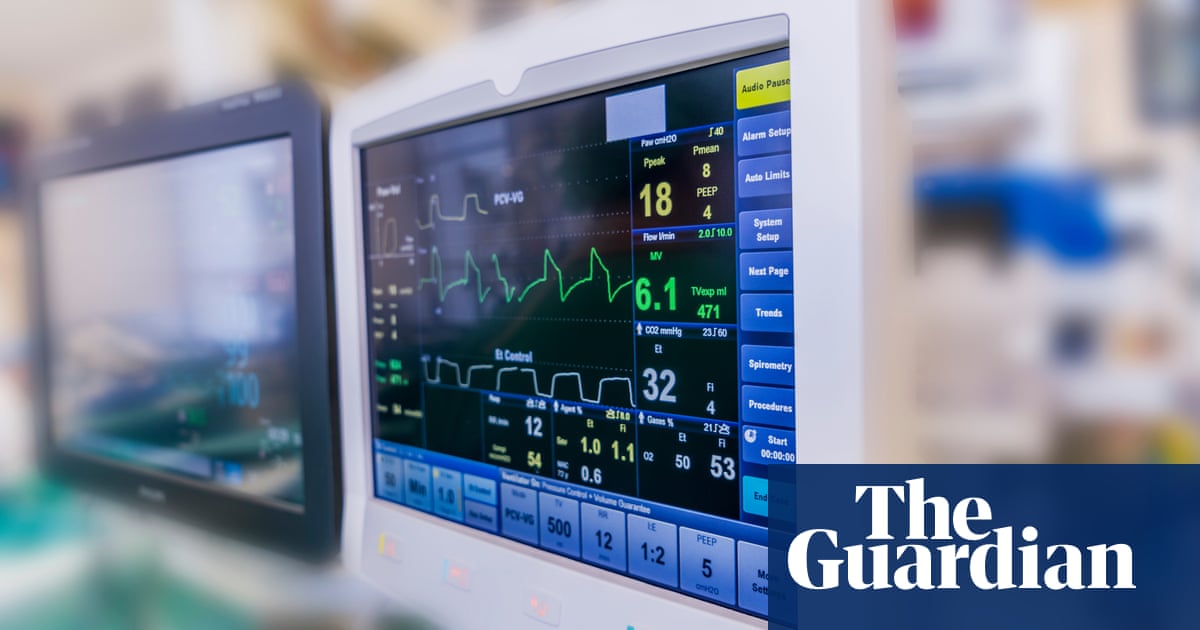Britain's NHS is launching the world's first trial of a “revolutionary” artificial intelligence tool that can identify patients at risk of type 2 diabetes more than a decade before the onset of the disease.
Over 500 million people worldwide type 2 diabetesAnd finding new ways to identify people at risk before they develop the condition is a major global health priority. It is estimated that by 2050, 1 billion people will have type 2 diabetes.
This condition is a leading cause of blindness, kidney failure, heart attacks, strokes, and lower limb amputations. It is often associated with being overweight, inactive, or having a family history of type 2 diabetes, but not everyone diagnosed fits into these categories.
Doctors and scientists have now developed an innovative AI tool that can predict who is at risk for the disease as much as 13 years before the onset of symptoms.
This technology analyzes electrocardiogram (ECG) readings during routine heart scans. It can detect subtle changes that are too small to be noticed by the human eye, giving an early warning to patients who are developing type 2 diabetes.
This allows for early intervention, such as changes in diet and lifestyle, which may allow people to avoid the condition altogether.
The NHS plans to start piloting the tool in 2025 at Imperial College Healthcare NHS Trust and Chelsea and Westminster Hospitals NHS Foundation Trust, making them the first health systems in the world to do so, according to the Guardian. The paper reported.
Those involved in developing the technology, called AI-ECG Diabetes Risk Estimation (Aire-DM), hope it will be rolled out across health services in the UK and other countries in the coming years. I am doing it.
Dr Libor Pastica, a clinical research training fellow at Imperial, said: “AI has huge potential to transform care, with the potential to lead to significant improvements in health.” “By using AI to unlock hidden insights in ECG data, Aire-DM has the potential to be revolutionary in identifying future risk for type 2 diabetes early.
“By providing an inexpensive, accessible, and non-invasive method for early prediction of type 2 diabetes risk, Aire-DM opens new opportunities for more targeted preventive care and helps people may help you avoid this condition and its associated complications.”
A team led by Dr Fu Siong Ng and Dr Arunashis Sau at Imperial developed the tool using 1.2 million electrocardiograms from hospital records. They then validated the tool's ability to detect subtle changes in electrocardiograms using data from the UK Biobank, which stores the genetic data and medical records of more than 500,000 participants.
This tool maps small ECG patterns that are common in people who will develop type 2 diabetes in the future and looks for the same patterns in new ECGs.
Obvious signs include changes in the way the heart's electrical signals travel, such as small changes in the timing, shape, or pattern of certain radio waves.
The tool can also identify longer electrical activation times and differences in how the heart's electrical signals reset. Although these changes may seem small, they reflect the early effects of diabetes on heart structure and function, long before symptoms appear.
Tests have already shown that the tool accurately predicts risk for people of different ages, genders, ethnicities, and socio-economic backgrounds about 70% of the time.
Combining AI predictions with genetic information and clinical information such as age and blood pressure further improved accuracy and provided a clearer picture of risk, the researchers said.
Professor Brian Williams, chief scientific and medical officer at the British Heart Foundation, the charity that funded the development of the tool, said: “This exciting study uses powerful artificial intelligence to analyze electrocardiograms and reveals how AI can detect things that normally go undetected.” be observed.
“This type of insight could be a game-changer in predicting future risk of developing type 2 diabetes years before the disease develops.
“Type 2 diabetes is a rapidly growing health problem that increases the risk of developing heart disease. However, with the right support, it is possible to reduce the risk of developing this condition.
“We will explore how this technology can be incorporated into clinical practice and provide opportunities for early intervention to reduce risk and even prevent type 2 diabetes and its associated complications altogether. I’m looking forward to seeing it.”


